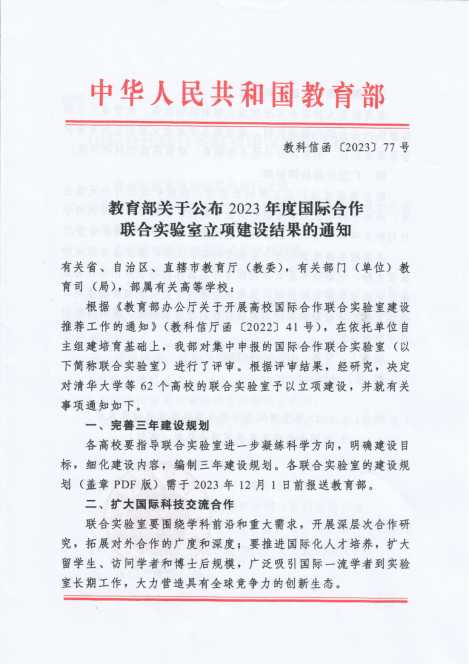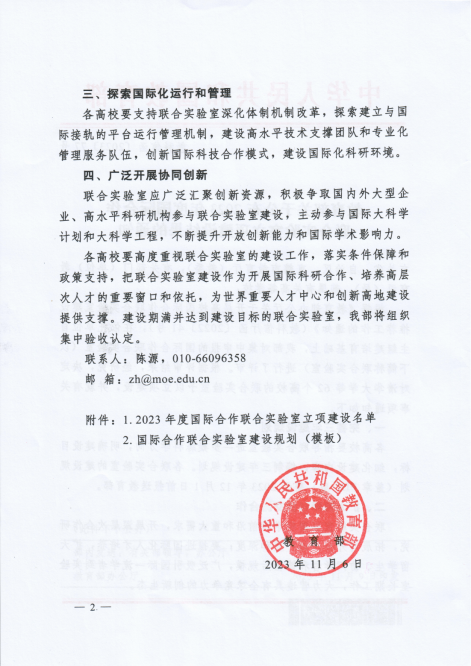Recently, the Ministry of Education released a list of 62 international joint laboratories approved for establishment in 2023. Among these, the International Joint Laboratory of Safety and Energy Conservation for Ancient Buildings at BUCEA has been approved, making it the first international joint laboratory approved by national ministries and commissions at BUCEA, as well as the only one approved by the Ministry of Education among municipal universities in Beijing.


The International Joint Laboratory of Safety and Energy Conservation for Ancient Buildings is supported by BUCEA in collaboration with various prestigious foreign universities in this field, including Politecnico di Milano in Italy. The laboratory brings together the prominent resources of supporting institutions and focuses on addressing major national needs and scientific issues. It conducts international joint research on basic theories of “comprehensive performance evaluation and resilience improvement for ancient buildings”, “physical environment optimization and low-carbon energy use in ancient buildings”, and “intelligent monitoring and maintenance for ancient buildings”. It also focuses on key generic technologies and engineering applications. The laboratory is managed by one Chinese director and one foreign director. The Chinese director is assumed by Professor LI Aiqun, former vice president of BUCEA; and the foreign director is assumed by Professor Maria Antonia BROVELLI, former vice president of Politecnico di Milano, Italy.
Launched by the Ministry of Education, the international joint laboratory initiative is an important strategic endeavor to address international frontier scientific issues and major national needs. Since its implementation in 2014, the initiative has played a pivotal role in enhancing cooperation with high-level universities abroad, establishing platforms for teaching and research cooperation, jointly promoting high-level basic and high-tech research, and improving the quality of innovative talent training.
